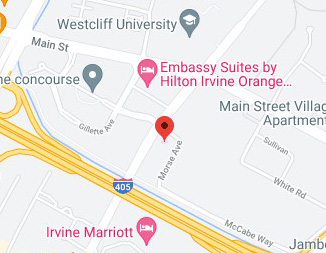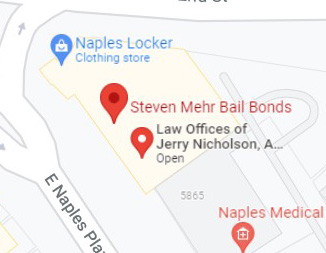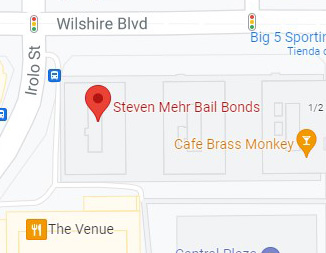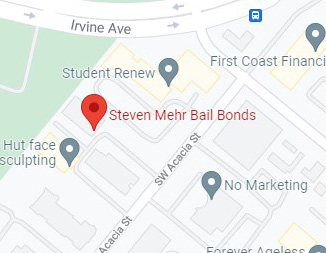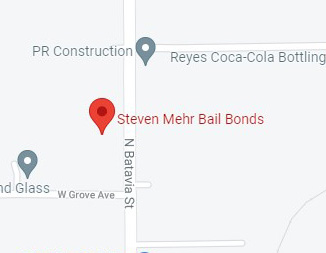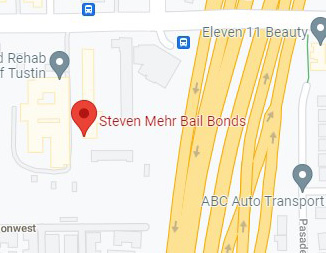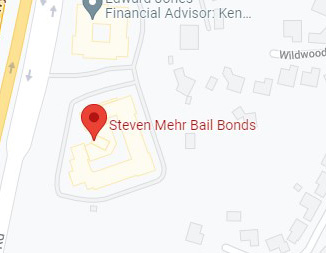The constitution allows individuals to be apprehended for various offenses, which is why many people are arrested every day. Whatever the cause, your arrest can cause many inconveniences, mainly if you have a job, a business to run, a family to look after, or a school to attend. The constitution understands this, which is why it has a provision for you to be released on bond pending trial. You can go on with your life by securing pretrial release as if no arrest took place until the case is closed.
Unfortunately, not everyone who seeks a release on bond in San Clemente is eligible for this release, mainly if the court considers you a flight risk to the public. At Steven Mehr Bail Bonds, we are ready to help navigate the bond process and post bail on your behalf through our bail bonds agents.
What Are Bail Bonds?
A bail is a contract made by a defendant after apprehension for an offense, promising to appear in court at a scheduled date or deposit with the court the payment demanded in exchange for the pretrial release. You and the court often sign this contract, then your San Clemente bail bonds become the co-signer. The bail agency comes in when you cannot raise the amount the court demands as bail. The agency guarantees to pay the bail amount in exchange for a premium fee, often 10% of the bail amount arrived at by the court.
The amount you pay to the court is an incentive to ensure you don’t skip court on the scheduled hearings. Therefore, bail is not punishment for a crime but rather a form of guarantee that you will appear in court without having to send a bounty hunter to arrest you.
It’s easy to assume that bail is a simple process that involves paying the amount requested and then being released. However, this is untrue because the process entails many stages, and it’s not always straightforward. A lot is involved in the process, and this is where your San Clemente bail bonds agent comes in. Most of the people being released on bail are first-time offenders who find themselves in a bail situation for the first time. It helps to know that you have a bail agency by your side, willing to guarantee your release if you honor the release conditions.
Apprehension, Booking, and Bail Process
After a lawful arrest, you will be taken to the nearest police custody or jail for booking. If the offense committed is an infraction or requires a warning, no formal charges will be filed, meaning you will be released right away. However, if charges are being filed, the arresting officer will hold you in custody, further awaiting bail to be set. For a more serious offense, you will need to appear before a judge for a bail hearing. If during the hearing the judge decides to deny you bail based on the nature of your case and criminal history, you will remain in custody until the case is closed.
In the booking stage, you should expect the officers performing the process to take pictures, fingerprints, and record your details. The fingerprints may be used to check if you have ongoing charges against you or have been convicted for a crime in the past. If you have any physical belongings, they will be entered into the records, and you will be placed in a holding area awaiting your bail hearing or arraignment.
Once you have been booked, the officers can set you free but after issuing a citation requiring you to appear in court at a future date. The police can also rely on the bail schedule to set a bail amount. With the help of your San Clemente bail bonds, you can pay the set amount to secure release if you cannot afford to raise the bail amount in full. Alternatively, the amount set from the bail schedule might need reviewing by the court, hence the need for a bail hearing where the judge decides whether to grant or deny bail.
If you were apprehended for a minor offense like an infraction or misdemeanor, especially for the first time, only a citation would be issued, and you will be released. For violent crimes or repeat offenders, you may be required to appear before a judge for a bail hearing.
Bail Hearing
A bail hearing is set so that the court can evaluate the circumstances of your case and decide whether you should be released on bail or not. If the court decides to release you on bail, they will check what is provided for in the bail schedule or recommended by the arresting officer. The judge has the discretion to make adjustments to the bail amount but within the law.
The court’s decision to grant or deny bail is based on the following factors:
-
Flight Risk
Flight risk is usually about whether you, as the defendant, will show up in court as scheduled or you will skip town on the day of the court hearing. The court classifies defendants as flight risks based on the possible sentence they will face if convicted for the current crime. If your case involves life incarceration upon sentencing, you might think of fleeing if the odds of the case are not in your favor. On the other hand, if you’re charged with a minor offense whose conviction attracts fewer penalties, you might not consider fleeing town, so you will not be considered a flight risk, and the court can easily grant bail.
-
Community Links
If you have strong community ties, you are less likely to consider skipping court because you will have a lot to lose, so the court might grant bail. However, if you have no connections with the community, you may be tempted to miss court dates. Community links mean you have a family, business, or real property in San Clemente. You can’t afford to leave these behind just to avoid showing up in court. Therefore, the likelihood of the court granting bail if you have solid community ties is higher than when you have no connections.
-
Assets and Income
The court will consider your employment status and assets when granting bail, and if holding you in custody will or cannot raise the bail amount will affect your source of income. For example, an individual with no income or assets will consider a low bail amount as a deterrent to their pretrial release than financially stable individuals.
-
Criminal Record
Before granting bail, the judge handling your case will run background checks on your criminal history. If the records show you tend to skip court, they will deny you bail or set a high bail, making it difficult for you to consider skipping bail.
-
Public Safety
If the crime you are accused of committing put or was likely to put the general public in danger, you might be denied bail. Crimes like these include terrorism. The court will deny an individual accused of terrorism bail because by allowing them to return to the community, the court will be exposing the public to a lot of danger.
-
The Severity of the Crime in Question
The court will impose higher bail amounts for individuals charged with violent crimes and low bail amounts for those faced with less severe offenses. Therefore, if you have been charged with a crime like murder, you should expect the court to set a high bail amount because of the stringent penalties you will face if found guilty. A lower bail amount might tempt you to skip court to avoid the consequences of a conviction. However, if you have been charged with a crime like petty theft, the court will set a small bail amount.
Bail Conditions
Remember, the process of bail is not straightforward. Particular conditions come with being granted bail. The court imposes these conditions, and if you violate any of them, the bail will be canceled, and you will be taken back to custody for the remaining part of your criminal trial. These conditions are set to ensure you show up in court for your trial proceedings and that the community you are going to join is safe after your freedom. The common bail conditions include:
- You should not engage in other crimes when you are out of jail on bond because if arrested even for a minor offense, you won’t be granted bail.
- You shouldn’t have drugs or alcohol if your current offense is alcohol or drug-related. Sometimes the court might even require you to undergo regular drug tests.
- In some cases, the court might require you to maintain their job as it becomes easy for the court to track you down. If you are unemployed, you might be requested to find one because you are less likely to skip bail if you have a stable job.
- Travel restrictions where you’re required to remain within your jurisdiction until the case is closed unless permitted by the court.
- The court will require you to maintain pretrial check-ins with a service officer to know whether you are adhering to the terms of your bail.
- If you have been accused of domestic violence crimes like stalking, criminal threats, or corporal injury to a spouse, the court might require you not to contact certain people.
The Process of Posting Bail
Posting bail differs from one jurisdiction to another. In San Clemente, when the court grants bail, the person posting bail will deposit the amount with the local jail or courthouse. If you cannot raise the bail amount, San Clemente bail bonds agents are ready to post bail on your behalf.
When you contact a bondsman, they will need you to provide personally identifying details and booking number. These are the details the bail agent will rely on to track you down where you are being held to post bail. Likewise, the person receiving bail will require the bondsman to provide the identity details of the defendant, booking number, and the amount of bail they should deposit.
Once the money is received, a notice is sent to the jail or police custody officers where you are being held. The release process takes a few hours, mainly if the clerk receiving the deposit is situated in the jail, you are being held. After that, the bail amount can be deposited in the form of cash, traveler checks, money order, and certified checks.
Release Of Your Bail Money By The Court
As mentioned earlier, bail is not punishment for a crime. For this reason, when you comply with the conditions of your release and the case is closed, the court will refund the bail money. When you post bail, you should have the following expectations:
Obtain a Refund of the Bail Money
If you adhere to the terms of the pretrial release and the case is concluded, you will obtain an automatic refund. The refund depends on the type of bail bond you posted. The most common forms of bail bonds are cash, surety bonds, or property bonds. If you posted bail in cash, you would wait for a few weeks before receiving the refund. For property bonds, a lien of the property will be released to the court.
Note that you must file a petition requesting to obtain the bail money or lien on the property used to secure the bond for cases tried in the federal court.
Forfeiture of Bail
Bail forfeiture occurs when you fail to adhere to bail conditions. It means that the money you deposited as bail will not be refunded. These cases happen when you skip town during the date of your hearing. If your bail bonds agency posted the bail money on your behalf and the money is forfeited, they will need you to pay them in full. If you used your property as collateral, the property would be seized and sold to recover the money lost after forfeiture.
Like the court, you forfeit your bail money with the bail agency. When a bail agency posts bail on your behalf, they take responsibility for your court appearances, and when you don’t show up in court, they are responsible for tracking you down to bring you before a judge. If they are unlucky to track you down and time lapses, the bail agency will pay the amount in full. The company will recover the bounty hunters’ total bail money and cost by auctioning the property you placed as collateral.
San Clemente Jail and Court Information
San Clemente Jail
Superior Court Service Center
Find the Right Bail Bondsman Near Me
Staying in custody for long interferes with many aspects of your life. Bail offers you relief and creates time for you to focus on your family, work, and building a strong defense to win the case. If you are looking for bail services in San Clemente, Steven Mehr Bail Bonds is here to help. Contact us for a free consultation.





